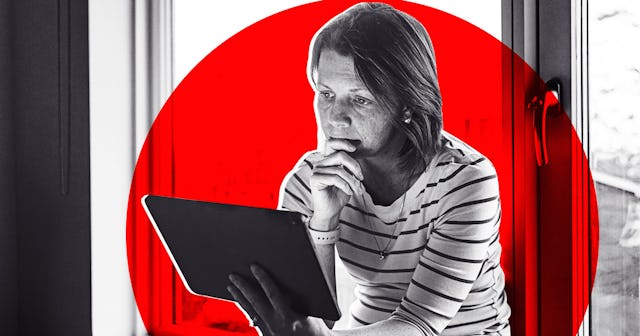Death Isn't The Only Concern With COVID-19

In March, when the World Health Organization (WHO) officially declared that COVID-19 was a global pandemic, nobody knew what to expect. The general consensus was that the virus was more dangerous for older people, but it could be deadly to anyone—and there was no rhyme or reason as to how the virus chose its victims. We knew little about the virus and doctors didn’t have any tools in their toolbox for treating the sickest patients. Whether rational or not, I was afraid of dying and leaving my children orphaned.
But six months later, that’s changed. Treatments are better. Less people are dying and doctors have tools in their toolbox. Maybe not curative tools, but efficient tools that allow people to go home to their families. Taken all together, that means, as a relatively young and healthy person, I am feeling more confident than I did in March that if I contracted COVID-19, I would survive.
And yet, I’m still afraid of contracting COVID. Not because I’m afraid to die, but because I’m afraid of how I might have to live.
I’m Afraid Of Long Term Damage
In the earliest days of the pandemic, nobody knew what to expect from this virus. COVID had no past, no victims or survivors to share stories. We didn’t know what, if any, permanent damage the virus might leave in its wake. But six months later, we have a first wave of survivors, and stories are beginning to emerge. Not just of the days of acute illness, but of the effects of weeks and months after.
Recently, the Washington Post returned to Bergamo, Italy, the site of one of the first world epicenters. Doctors there are calling back survivors, twenty at a time, and seeing what damage coronavirus has wrought to their lives.
The results are concerning and terrifying and everything in between. The virus is gone from the patients’ systems (phew) but the damage remains. Half of patients say they do not feel cured. According to the Washington Post article, “some 30 percent still have lung scarring and breathing trouble. The virus has left another 30 percent with problems linked to inflammation and clotting, such as heart abnormalities and artery blockages. A few are at risk of organ failure.”
And not all of these patients had preexisting conditions that could be pointed at to explain why the virus did so much damage. In its reporting, the Washington Post told the story of a man in his 80s and his son. Both survived the virus, but the son did not fare as well, and the father has had to become his son’s caretaker. For no reason that the doctors can identify, the younger man is suffering more than his older father.
I’m Afraid of Being Sick For Weeks or Months
martin-dm/Getty
Then there are the first person accounts from across the globe of long-haulers, people who had the virus and weeks and months later are still experiencing symptoms. Daily fevers, chronic fatigue, lingering breathlessness, and brain fog are just a few of the symptoms being reported that are making going back to “normal” nearly impossible.
Margot Gage Witvliet, an epidemiologist, contracted COVID in March. One seizure and months later, she’s still struggling with fatigue, brain fog, and headaches, and still unable to do more than rest for the majority of the day.
That’s a consequence of contracting COVID-19 I can’t afford. I am a solo parent. I am responsible for two children who rely on me from morning until night for three meals (and endless snacks) a day and emotional support at all hours.
I’m Afraid To Pay For The Rest Of My Life For A Choice I Made Today
The heart of my fear is this: I’m afraid to pay for the rest of my life for a choice I made today. Because *knock on wood* I’m fairly certain I would have a life, but it may not look the way I want. I’d probably survive COVID, but surviving isn’t enough.
I know how hard it is to be suddenly unable to live your life the way you want to live it, to suddenly be unable to do the things you’ve always done because an invisible monster has invaded your body. I remember the day my husband walked off the tennis court for the last time—a sport he’d played since childhood—and said he couldn’t play anymore because his body wasn’t doing what he wanted it to do. I remember with too much clarity the toll that admission took on him. He died from brain cancer not long after. I’m afraid to one day have to make that same admission. More than that, I’m afraid to have to make that same admission while also looking back at a choice I’d made that I can’t unmake. If I contracted COVID, it may not be my fault—the virus is sneaky and insidious—but also, it may be because for a moment I wasn’t as cautious as I should have been.
Health is a privilege. One I know not to take for granted.
We don’t yet know what percentage of people become long-haulers and whether the damage doctors are seeing to patients’ organs is permanent or not. We don’t know why some people recover easily and others don’t. We still don’t even know all that we don’t know. We only know that all we can do is listen to the experts and do the best we can to keep ourselves and each other safe: wear a mask, wash our hands, social distance.
My heart goes out to every person affected by COVID-19, those who are grieving the loss of a loved one, those who are suffering symptoms, and those who are now wondering whether the damage to their organs will be permanent. I hope we get answers soon.
This article was originally published on